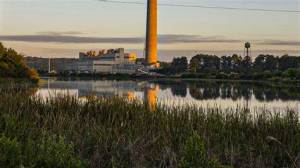Georgia Power, the largest of Atlanta-based holding company Southern Co. utilities, has unveiled an updated integrated resource plan (IRP) almost certain to generate new controversy for a utility mired in controversy for more than a decade over its investment in large, new nuclear units. The company’s push for new natural gas generation will generate new political heat.
On Oct. 27, the company said it is updating its 2022 IRP because customer growth has been more than 400 MW higher than the electric utility said in January 2022 it would see by 2030. The earlier plan predicted demand would be 6,200 MW by the end of the decade, and the utility is revising that to 6,600 MW.
“Many businesses coming to the state are bringing large electrical demands at both a record scale and velocity,” Georgia Power CEO Kim Greene said in a news release.
The company has spent more than 15 years and some $30 billion trying to bring 2,000-MW of new nuclear capacity online at its troubled two-unit Vogtle 3 and 4 Westinghouse nuclear units. The company insisted on completing the plants, arguing that nuclear was the least-cost way to cope with demand growth. The first unit went into service in July and the second is scheduled for early next year.
While the updated resource plan filed with the Georgia Public Service Commission includes 1,000-MW of company-owned battery electricity storage, the heart of the IRP update beats with gas. The fossil energy plans the utility outlined in its update are:










